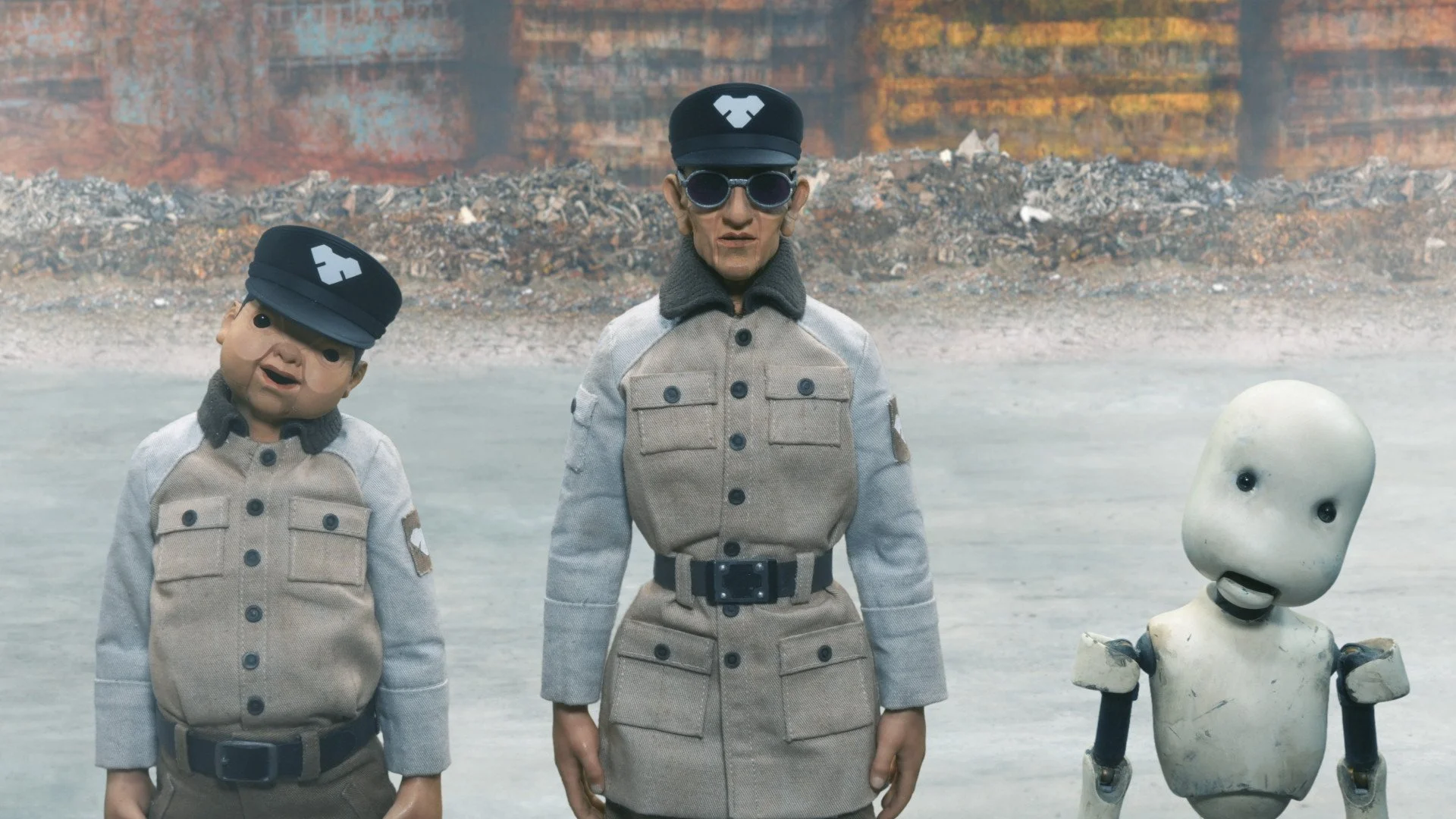TIFF 2025: ‘Karmadonna’ | ‘Junk World’
Verging on something close to a debaucherous riff on the Assassin’s Creed video games and its religious violence inflicted upon a checklist of surface-level evil, Karmadonna leads with a potentially exciting premise thrust into the hands of childish mayhem. Given its director, Aleksandar Radivojević, co-wrote A Serbian Film—one of the most notorious exploitation films—it’s no surprise that his directorial debut toes the line between bad taste and incisive social commentary. However, where promise might have been found in the idea of a spiritual guide letting karma run loose to a bloody spectacle, Karmadonna fails to meet its potential. Abrasive to the point of undermining any clever concept that might have emerged from its critique of modern-day society and surprisingly sluggish in its pacing, Radivojević’s maximalist holy crusade is a silly rampage of extreme finger-pointing that is painfully boring in execution.
Perhaps the biggest problem with Radivojević’s screenplay is that it begins by trying to shock its audience and then fails to reach the same high. Yelena (Jelena Djokić), a pregnant woman in her third trimester, receives a mysterious phone call from a voice claiming to be a God who instructs her to kill a list of individuals that the caller has deemed a sickness on civilization. At first reluctant, this God—or “The creator of content” as he refers to himself—showcases his power and the severity of his request by forcing a series of violent outbursts to occur before threatening to kill Yelena’s unborn child. With the loss of a child weaponized against her, Yelena’s hand is forced and proceeds down the spiritual entity’s list, usually speaking to the prospective victims to find out their moral character before displatching them in brutal, occasionally comedic ways.
Karmadonna is a silly movie, and its special effects combined with Sam Raimi-esque camera movements that zoom in and out while sweeping through scenes at a frantic clip are all emblematic of the kind of film that Radivojević seems to be striving for. The issue is that from its initial set-up, it becomes a cavalcade of shallow observations about society, pinning the decline of civilization on influencers, reality TV, social media, and the willingness to debase oneself for fame. I found myself reminded of Bobcat Goldthwait’s God Bless America, but with too much seriousness for its over-the-top carnage against the parasites of the world to really deliver the same catharsis in its violence. Djokić is great as Yelena, but the character is so underdeveloped that the only saving grace the film could have is drenching itself in buckets of blood—unfortunately, by the time it finds itself ready to do so, it has been a tedious exercise of patience to get there.
The 50th Toronto International Film Festival took place from September 4th to 14th. Karmadonna celebrated its World premiere on September 9th, as part of TIFF’s Midnight Madness program. The full list of films selected for the festival can be found here.
Takahide Hori’s Junk World is a classic example of building a sturdy foundation before expanding in both scope and scale, while praying ambition outweighs any flaws. Of course, simpler can also be just as impactful, which is what makes Hori’s sequel to Junk Head slightly disappointing. With unbridled imagination and a clear anime influence, Junk World confronts its predecessor’s dingy corridors and rusted aesthetic with colossal monuments and alternate universes, where the grotesquerie of its lifeforms may persist, but how they’ll kill you is still a wonder to behold. The craft remains unassailable, but Hori’s surprise return to the Junk Head universe is a case of diminishing returns despite some truly awe-inspiring set pieces and a commitment to its worldbuilding that is rarely seen in this kind of film.
Junk World does as its name suggests: expanding upon the world established in Hori’s 2017 film while retaining the same endearingly macabre stop-motion animation. A prequel to Junk Head, there are familiar elements at play, but it’s mostly a new cast of characters living in the same subterranean world, contending with stakes far beyond the scope of the previous film. The same cute, yet disgusting, world now plays host to a rivalry between humans and the Mulligans, who were created by humans and then forced to live underground, as their uneasy alliance is threatened by an anomaly that could have disastrous effects on their world. Humans and the Mulligans elect representatives to embark on an expedition to investigate and assess the potential risks, only to be met by a subgroup of the Mulligans known as the Gyuran Cult, who aim to take their rightful place above the surface by whatever means necessary.
Junk World’s biggest fault is that it just doesn’t stop building its world to a point where most of the characters feel underdeveloped. There are touching moments here and there, but the film is so story-heavy that it feels like it’s rushing to the next plot point to avoid collapsing under the weight of its narrative. Some comedic moments sprinkled throughout and stellar action sequences provide some respite from the lore dumps, but it can become a bit unwieldy. Junk World still rules in every way that the original film did, especially with the sense of wonder that is felt while watching the herculean effort in animation, but when the film starts retreading its own steps with little to say, it’s left with a lot to prove. Hori’s film is still a staggering achievement in animation—and one that has to be seen to be believed—but the return to the Junk Head universe can’t help feeling slightly disappointing.
The 50th Toronto International Film Festival took place from September 4th to 14th. Junk World celebrated its International premiere on September 11th, as part of TIFF’s Midnight Madness program. The full list of films selected for the festival can be found here.


